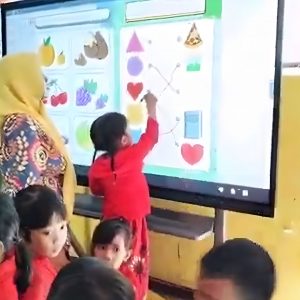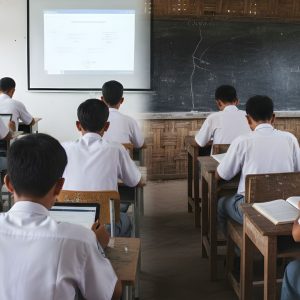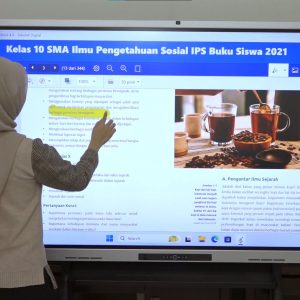
One of the major barriers to lasting progress in education reform is the government’s tendency to attempt building everything from scratch—often under the illusion that they can create better solutions themselves. This approach repeatedly fails, not because the intention is wrong, but because of how public institutions operate.
Government officials typically serve fixed terms of around five years. After that, they are replaced, and many projects started under their tenure are abandoned, canceled, or restarted from zero by their successors. This cycle of starting over again and again leads to massive inefficiencies, wasted resources, and stalled progress. Meanwhile, students and teachers continue to wait.
In contrast, private companies—like Indonesia’s own Kipin EdTech—are built for continuity. Kipin has been working for more than a decade, steadily innovating, refining, and improving its education technology solutions. There is no leadership change every five years, no sudden shifts in direction—only continuous, focused improvement. That’s why Kipin’s innovations are now world-class and highly practical for Indonesia’s unique challenges.
A prime example is Kipin Classroom, a smart education server that brings high-quality digital learning to schools without internet access. It enables students to access thousands of learning resources—books, videos, quizzes, and exams—through devices like Chromebooks, tablets, or phones using EduSPOT, Kipin’s offline content distribution technology.
Unlike government attempts to build new platforms (which often lack user experience design, innovation, or depth of content), Kipin offers a battle-tested, cost-effective, and scalable solution that already works in thousands of schools. Trying to replicate what Kipin has built would not only cost significantly more—it would also take years, and likely fail to match Kipin’s quality.
Across the world, smart governments partner with private innovators to solve national problems. They do not try to compete with or replace private-sector solutions. The role of government is to regulate wisely, support the best local entrepreneurs, and help scale proven innovations that work.

Kipin is an excellent example of this principle. It combines robust technology with rich educational content—such as interactive books, leveled learning modules, educational videos, and practice materials—that have taken years and billions of rupiah to produce correctly. Developing this kind of content is far beyond simply writing code—it requires deep pedagogical understanding, curriculum alignment, and scalable distribution, all of which Kipin has achieved.
You can see an example of Kipin’s learning media here:
1000 Kids Education Media References
By adopting Kipin’s all-in-one system, Indonesia can overcome the usual barriers to education:
- No more internet dependency
- No more cost issues for schools
- No more infrastructure gaps
- No more wasted time reinventing broken systems
The result: equal access to quality education, even in the most remote areas.
This is what makes Kipin a low-cost, high-impact solution—exactly what our nation needs to reach the goal of Pemerataan Pendidikan Berkualitas (equal access to quality education).
Governments should stop trying to reinvent the wheel and instead embrace Kipin as a proven, scalable, and sustainable innovation. That is the key to real transformation—and a smarter path toward achieving Indonesia Emas 2045.
Contact Us:
Web : kipin.id
Email : info@kipin.id
WA Chat : wa.me/6281233601047






